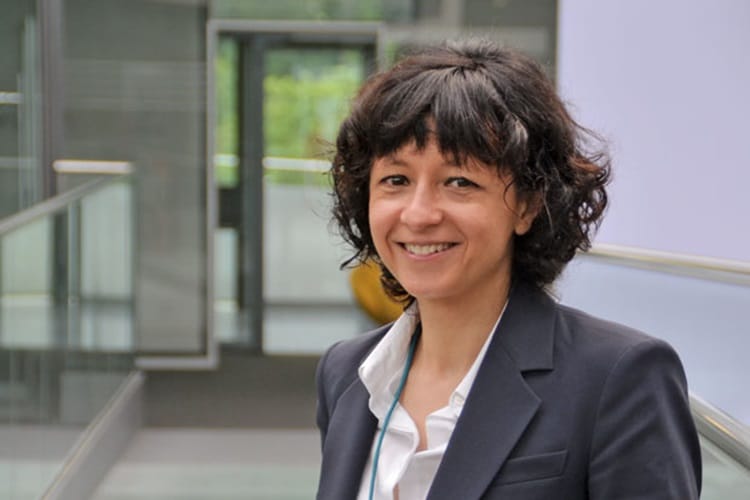Emmanuelle Charpentier is a French professor and researcher in microbiology, genetics, and biochemistry. He was awarded the Nobel Prize in Chemistry.
Life and Career
Emmanuelle Charpentier was born on December 11, 1968, in Juvisy-sur-Orge, France. Charpentier grew up in a scientific environment. Her father was a chemist, and her mother was a physician. This early exposure likely influenced her interest in science.
Charpentier pursued her undergraduate studies at the University Pierre and Marie Curie (UPMC) in Paris, where she obtained a master’s degree in biochemistry.
She continued her education at the Pasteur Institute, earning a Ph.D. in microbiology in 1995. Her doctoral research focused on the regulation of a bacterial operon involved in antibiotic resistance.
Following her Ph.D, Charpentier conducted postdoctoral research at Rockefeller University in New York, where she worked on RNA-mediated mechanisms.
Charpentier held various academic positions, including Assistant Professor at the University of Vienna and head of a research group at the Max F. Perutz Laboratories in Vienna.
In 2011, Charpentier made a groundbreaking discovery while working at Umea University in Sweden. Along with Jennifer Doudna, she identified and characterized the CRISPR-Cas9 gene editing system, a revolutionary technology that allows precise modification of DNA in various organisms.
The CRISPR-Cas9 technology has had a profound impact on molecular biology, genetics, and medicine. It has opened up new possibilities for gene therapy, genetic engineering, and disease treatment.
Charpentier’s contributions have been widely recognized. In 2020, she and Jennifer Doudna were awarded the Nobel Prize in Chemistry for the development of the CRISPR-Cas9 technology.
Award and Legacy
Charpentier, along with Jennifer Doudna, was awarded the Nobel Prize in Chemistry in 2020 for the development of the CRISPR-Cas9 genetic scissors. This recognition highlighted the transformative impact of their work on genetic research and potential applications in medicine.
The CRISPR-Cas9 technology has become a cornerstone of genetic research, allowing scientists to edit genes with unprecedented precision. Its simplicity and versatility have opened up new possibilities in areas such as gene therapy, agriculture, and the study of genetic diseases.
The technology holds great promise for medical applications, including potential treatments for genetic disorders, the development of personalized medicine, and advancements in cancer research.
Charpentier’s collaborative work with Jennifer Doudna exemplifies the importance of international and interdisciplinary collaboration in scientific breakthroughs. Their partnership has become a model for successful scientific cooperation.
Charpentier’s achievements serve as an inspiration for aspiring scientists, especially women in STEM fields. Her success underscores the importance of perseverance, curiosity, and a commitment to pushing the boundaries of scientific knowledge.
The widespread use of CRISPR-Cas9 has also sparked discussions about the ethical implications of gene editing, including questions related to the potential for designer babies, unintended consequences, and the responsible use of such powerful technology.

